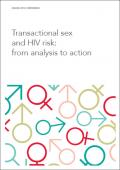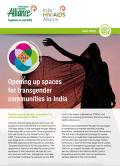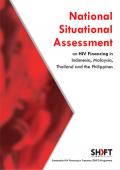Publications on Key Populations
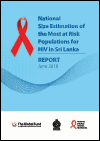
This report describes the process and the results of the size estimation study of key populations (KPs) in Sri Lanka, which was based on the methods of the geographical mapping with enumeration and the multiplier, as well as the results of the consensus-building workshop that utilised the Delphi process to arrive at the final population size estimates (PSE). Following KPs were included in the size estimation study: female sex workers (FSWs), men who have sex with men (MSM), male sex workers (MSW), transwomen, people who inject drugs (PWID) and beach boys (BBs).
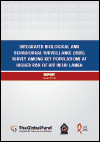
HIV prevalence in Sri Lanka is less than 0.1%, characterized as a low-level epidemic, according to the National STD and AIDS Control program (NSACP). Data amongst key populations is required to evaluate and guide national responses, and currently minimal data is available for key populations in Sri Lanka. Two previous surveys, a behavioural surveillance survey undertaken in 2006/7 and an integrated biological surveillance survey (IBBS) in 2014/15, showed low HIV and syphilis prevalence across all key populations with presence of risk behaviour and low knowledge around HIV.
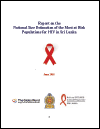
This report describes the process and the results of the size estimation study of key populations (KPs) in Sri Lanka, which was based on the methods of the geographical mapping with enumeration and the multiplier, as well as the results of the consensus-building workshop that utilised the Delphi process to arrive at the final population size estimates (PSE). Following KPs were included in the size estimation study: female sex workers (FSWs), men who have sex with men (MSM), male sex workers (MSW), transwomen, people who inject drugs (PWID) and beach boys (BBs).
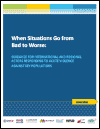
As the violence directed at members of key populations most affected by HIV — gay, bisexual, and other men who have sex with men; people who inject drugs; sex workers; and transgender people — intensifies and becomes “acute” in many parts of the globe, this brief offers guidance to international and regional actors who wish to be part of an effective and coordinated response.
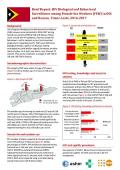
HIV Integrated Biological and Behavioural Surveillance (IBBS) surveys were conducted in 2016-2017 among female sex workers (FSW) in Dili and Baucau, Timor-Leste to track the HIV epidemic, monitor sexual risk behaviours, and to measure access to intervention programs in responding to HIV. FSW were defined as biological females, aged 17 to 49 years, having exchanged sex (anal and/or vaginal) for money or other items of value, to at least two clients, over the past 12 months. This survey resulted in a sample of 202 FSW in Dili and 110 FSW in Baucau.








